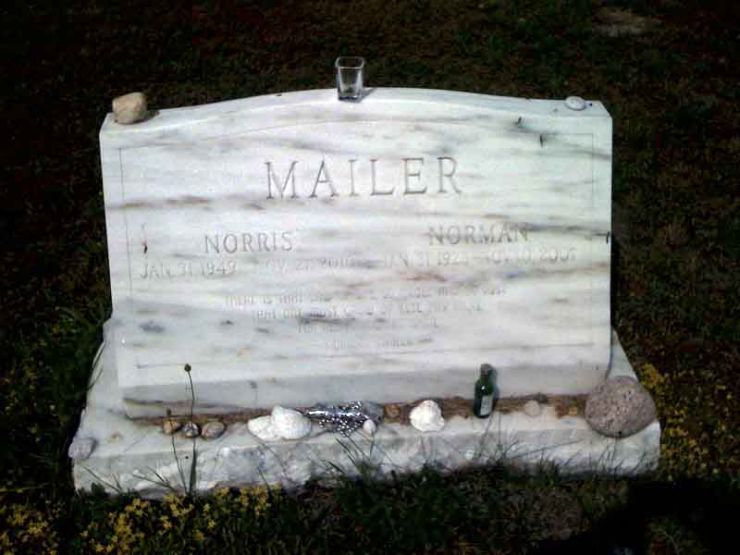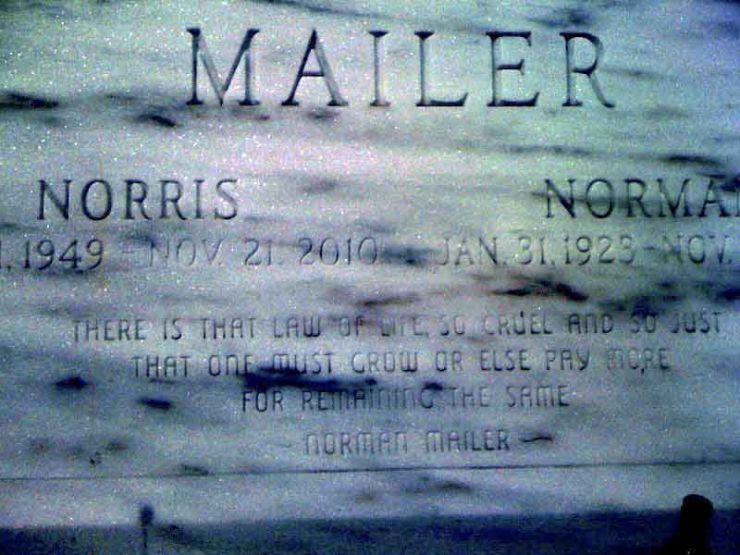“The novelist, thinks Sam, perspiring beneath blankets, must live in paranoia and seek to be one with the world; he must be terrified of experience and hungry for it; he must think himself nothing and believe he is superior to all. The feminine in his nature cries out for proof he is a man; he loves himself and therefore despises all that he is.”
—Norman Mailer, The Man Who Studied Yoga
It’s not just the book, but also the time at which that book falls into your lap. I was eighteen, logo-bedecked, on the North Shore of Oahu chasing surf glory when my friend Pete, joint dangling from lips, tossed me Tough Guys Don’t Dance.
“Really good stuff,” he said on an inhale, nodding toward the book.
Most striking for me was the observations of the protagonist, Tim Madden. I didn’t have these conversations. I didn’t know that such carefully-observed, highly-complex inner dialogues existed. That the same man who is down with wife swapping, or at least a wife swap, could think this deeply about things was revelatory. My reading at the time consisted of McEnroe: A Rage for Perfection, Eat To Win, The True Adventures of the Rolling Stones, Surfer, Surfing, and Thrasher. Mailer was a bridge. His intellect was towering, yet he was also a boxer, a jock. A couple paragraphs into Tough Guys, I realized I needed a dictionary. Luckily there was one at the sandy little apartment where I stayed. For the rest of the trip, we didn’t “leave” the beach, we “decamped.”
Mailer led me to Paul Theroux, John Updike, Henry Miller, Gabriel Garcia Marquez, Truman Capote, Sartre, Camus. A fairly standard reading list for my college freshman contemporaries, sure, but weighty stuff amid the chest-thumping milieu of competitive surfing.
As years passed, and my relationships with women became more than just backseat gropes, I had these literary pals to help me navigate the world of emotional risk-taking.
In Armies of the Night, Mailer describes a scene on a train in which two macho dudes get into a stare down. “The one who looks away first is the bigger man,” he wrote. At the time I thought it was a misprint. Only later, after several organ flayings, did I understand what he meant.
‘When faced with real emotion, the man of tremendous ego is reduced to whimpering at his opponent’s (lover’s) feet,’ he wrote, or words to this effect. A perfect eulogy to the first time I fell in love.
In The Deer Park, Charles Eitel, ace film director, tells Sergius O’Shaugnessy, his understudy of sorts, “Try, Sergius, try for that other world.” He goes on a rant about ‘orphans burning orphans’ (Sergius was an orphan), but what I took away was that there’s the world in front of us, which is endlessly fascinating and bottomlessly disappointing, and then there’s a world that resides in the imagination. Activate the latter and you will be protected.
I’m reminded of another story that came around this time by Hermann Hesse. A prison inmate, locked in a tiny cell, asks the guard for paint and brush. The guard complies. The inmate paints a pastoral setting—rolling hills, green skies, happy trees. Across it he paints a train track. When the track runs into the side of one of the rolling hills, the painter—the inmate—sketches the beginnings of what will be a tunnel. When the guard goes to check on him the following morning, the tunnel is completed and the inmate has vanished.

